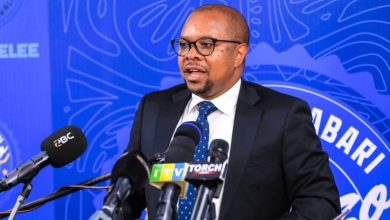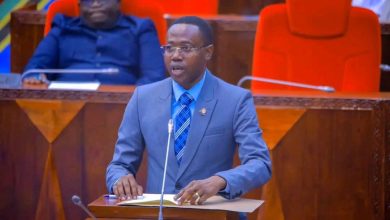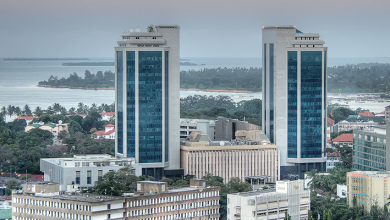UNLOCKING AGRIC, RENEWABLE ENERGY POTENTIALS:Tanzania to forge global ties

TANZANIA: TANZANIA is intensifying its efforts to unlock its agricultural and renewable energy potential, seeking stronger international cooperation, President Samia Suluhu Hassan announced after attending the G20 summit. creators and not just job seekers.
Her participation in the global forum has paved the way for promising partnerships and investments. President Samia said that Tanzania has vast agricultural potential, saying that the country not only meets its own food needs but also plays a vital role in regional and global food security.
“Tanzania is already selfsufficient in food production, with a surplus of 128 per cent of its needs, which we export to neighbouring countries,” she said.
She went on to highlight key agricultural exports such as maize, rice, horticultural products and beans, which are instrumental in feeding the region and reaching markets as far as China and Europe.
Despite these successes, President Samia acknowledged the challenges posed by climate change, limited access to fertilisers and outdated farming practices.
“To overcome these challenges, Tanzania is seeking increased international cooperation to invest in agricultural research, technology and infrastructure,” she said during a press briefing following the G20 summit in Rio de Janeiro, Brazil, on November 19.
She added: “By addressing key issues like research and mechanisation, Tanzania can become a major food supplier to Africa and the world.”
In the realm of renewable energy, President Samia pointed out Tanzania’s progress in harnessing its abundant solar, wind and hydropower resources.
“Our goal is to transition to a low-carbon economy and reduce reliance on fossil fuels. We aim to attract foreign investment and facilitate technology transfer to accelerate the deployment of renewable energy and improve access for all Tanzanians,” she said.
The G20 summit proved to be a significant platform for Tanzania to engage with global leaders and policymakers. President Samia highlighted the fruitful discussions on potential collaborations across various sectors, including agriculture, energy and infrastructure.
President Samia is optimistic about Tanzania’s economic future, citing the government’s ongoing commitment to creating a favourable business environment and attracting foreign direct investment.
ALSO READ: President Samia’s G20 attendance, promise of opportunity
During her visit to Brazil, the President held a series of crucial bilateral meetings expected to bring tangible benefits to Tanzania. She met with Norwegian Prime Minister Jonas Gahr Stør , where they discussed the clean cooking energy agenda and the need for further collaboration to ensure that Africa has access to sustainable energy solutions.
The President also met with Egyptian President Abdel Fattah El-Sisi, focusing on the Julius Nyerere Hydropower Plant (JNHPP) and the efficient use of Nile water.
Additionally, President Samia held talks with leaders from Vietnam, Indonesia and the World Bank, addressing key issues such as infrastructure, trade and development projects. She confirmed that Tanzania’s involvement in the January 2025 energy meeting would further bolster the country’s position in the global renewable energy sector.
Looking ahead to 2025, President Samia expressed confidence in Africa’s ability to influence global decisions, particularly with South Africa set to host the G20 Summit.
She spoke about her recent conversation with South African President Cyril Ramaphosa, where she reaffirmed Tanzania’s support for South Africa’s G20 chairmanship.
“We are proud to see an African leader chairing the G20, which is a monumental opportunity for Africa to push its agenda. We are committed to supporting President Ramaphosa to ensure the success of his leadership,” President Samia said.
The President also acknowledged the ongoing global challenges of hunger and poverty, highlighting that while progress can be made in addressing food insecurity, the complete eradication of hunger remains difficult due to factors such as climate change.
“In Tanzania, we have seen successful harvests in the past, but this season we face uncertainty due to belowaverage rainfall. If we address the effects of climate change and implement effective measures, we can continue to make progress,” President Samia said.





